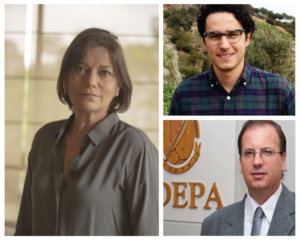Stigmatization, threats, detentions, and intimidation are some of the attacks faced by journalists when covering an electoral process.
In the last semester of 2023, these attacks became evident in Latin America during primaries and general elections in Argentina, regional elections in Colombia, and primaries in Venezuela.
UNESCO, on the occasion of the International Day to End Impunity for Crimes against Journalists, last Nov, 2, published alarming data on the subject. Between January 2019 and June 2022, UNESCO documented 759 individual attacks against journalists, including five murders, during 89 elections in 70 countries.
"The experience we’ve had, both in Colombia and in other countries, is that electoral processes are tense moments for journalistic practice. They are moments in which there is pressure not only from the politicians who are in the electoral race, but also from the public," Daniel Chaparro, management advisor of the Foundation for Press Freedom (FLIP, by its Spanish acronym), told LatAm Journalism Review (LJR).
LJR spoke with representatives of non-governmental organizations that follow press freedom violations in Colombia, Venezuela and Argentina to understand the situation in the region and to learn what measures are being taken to counter attacks against journalists during the electoral process.
On Oct. 29, 2023, regional elections were held in Colombia to elect governors, mayors and other municipal positions. FLIP made a record of the attacks on the press during that context and expressed its concern about non-compliance with access to information rights and freedom of the press.
"Colombia is a country that offers guarantees for the exercise of journalism in institutional terms. But, at the same time, journalists face many types of violence on a daily basis: there are stigmatizations, threats, obstructions, and little willingness to allow access to information," Chaparro said.
This year, FLIP recorded 52 aggressions to journalists, during the pre- and post-electoral period, which means an increase compared to the attacks registered in the previous regional elections (in 2019) when 41 aggressions were documented.
As recorded by FLIP, the main aggression against journalists during the 2023 elections was stigmatization, and the departments in Colombia most affected were Nariño and Antioquia.
"Something that has been happening for a couple of decades now is that politicians are singling out and holding journalists responsible for the fate or bad destiny we have as Latin American societies. That was something that did not happen before," Chaparro said.
For example, journalist Winston Viracachá of Radio Reloj radio station (located in the city of Pasto, department of Nariño) was accused by candidate Claudia Cabrera Tarazona of having alleged links with illegal armed groups. This happened after the candidate felt threatened during an interview.
For Chaparro, stigmatization is a cause for concern because, although Colombia does not have the same level of violence as a few decades ago, the State does not offer protection to journalists, judicial investigations do not make progress to clarify the facts surrounding violence and "we have a society that is increasingly apathetic to defend, denounce and support journalistic practice."
FLIP also clarified that the data provided may be underreported because journalists tend to naturalize attacks or distrust how effective it is to file a complaint. The organization says that 98% of the denunciations made by journalists for the crime of threats go unpunished.
Last Oct. 22, the primary elections of the coalition of opposition parties were held in Venezuela with the purpose of choosing the candidate for the presidential race to be held in 2024.
Human rights organizations in Venezuela denounced that the National Telecommunications Commission (Conatel), the governmental entity that regulates telecommunications in the country, conducted censorship practices before and during the primary elections of the opposition.
The organizations documented informal calls and communications by Conatel to the directors and owners of radio and television stations. In these contacts, Conatel reminded the media that the primaries did not have the backing of the National Electoral Council (CNE, for its acronym in Spanish), so they were not 'obliged' to cover the event.
"What happened in the primaries was unprecedented. Conatel did not send an official document. It was just information that was allowed to spread, which shows you the weakness and fear in which the media are working in Venezuela," Marianela Balbi, executive director of IPYS Venezuela, told LJR. "These elections were a matter of public interest, beyond whether the CNE endorsed it or not. It had all the attributes of news. So, how can it be understood that the private and public media did not cover it."

Marianela Balbi, executive director of Ipys Venezuela (left); Daniel Chaparro, management advisor of the Foundation for Press Freedom (upper right); and Andrés D’Alessandro, executive director of the Association of Argentine Journalistic Entities (bottom right). (Photos: courtesy)
According to Balbi, IPYS Venezuela was able to verify that some of these intimidating messages were sent by Conatel officials through WhatsApp and the most affected media were regional radio and television stations.
One of the measures taken by IPYS Venezuela to counteract censorship in the country is to create news reports through radio micros.
"We produce an electoral newscast that twice a day provides hyper local and useful electoral information for people who want to be informed. To broadcast the micros we use new mechanisms such as social media, WhatsApp groups, Telegram or Signal, because broadcasting through regular means is not possible," Balbi said.
During the coverage of the primaries in Venezuela, journalists were not only victims of censorship, but were also intimidated at the polling stations or disqualified on social media.
Some examples are that of independent journalist Karla Avila who was photographed by an unknown man and a security guard while she was carrying out her journalistic work.
Avila told LJR that the incident happened while she was recording inside a polling station a complaint from a polling station member.
"A man arrived and started taking pictures directly of our faces. Then he left and got into a vehicle with no license plates and tinted windows. Then a police officer, who arrived on a motorcycle, took pictures of me," Avila said
"Some journalists do not denounce it because this kind of event has been normalized. It’s now considered normal to go out to cover an event and some official takes your photograph to intimidate you. It’s harassment, it feels like a dog baring its teeth but then it does not end up biting you," Avila added.
There is also the case of the communicator and lawyer Alexander Olvera, who was insulted in X (formerly Twitter) for posting a complaint about unknown subjects photographing voters.
"We as an organization believe it’s very important to continue exerting an influence, so that the media’s independence in electoral contexts becomes an issue on the public agenda...we warned the OAS Freedom of Expression Rapporteurship, [that] key electoral events are coming up in many countries and we have a problem of independence, of harassment of the media, of disinformation," Balbi said.
Argentina is closing an election year with the victory, on Nov. 19, of the now president-elect Javier Milei.
Human rights organizations in Argentina criticized Milei's attitude against journalists. The use of adjectives against the press such as "liars" or "roñosos," a term associated with something dirty and deteriorated, were common.
Even in his next to last campaign tour, prior to the elections, Milei attacked a reporter in the city of Rosario, in the province of Santa Fe. The then-presidential candidate pushed local journalist, Pedro Levi, and told him: "This is for the people, not for you."

In his next to last campaign tour, prior to the elections, Javier Milei attacked a reporter in the city of Rosario, in the province of Santa Fe, Argentina. (Photo: Screenshot)
"In smaller towns in the interior of the country, in the provinces, more aggressions usually take place. This year, in a province in the North of Argentina, a journalist was hit with a stone while he recorded a video. There were also verbal aggressions and some cases of limiting journalists' access to certain coverage," Andrés D'Alessandro, executive director of the Association of Argentine Journalistic Entities (ADEPA), told LJR.
"There was zeal on the part of some politicians to allow the entry of journalists or news outlets they considered as opposition, when in fact these are critical, serious and professional outlets that were covering electoral campaigns," D'Alessandro added.
On the other hand, in his first interviews as president-elect, Milei confirmed that he will promote the privatization of state-owned companies, among which he mentioned Public Television, National Radio and the Télam news agency.
"For now, we have not made any public statements after the election because obviously we are waiting for the appointment of the officials who will be in charge of managing the Media and Public Media Department. Eventually, after that, the measures they take will be analyzed," D'Alessandro said.
Latin America closes the year with elections in Chile with a constitutional referendum to be held Dec. 17. Since 2019, Chilean press protection organizations have registered more than 400 attacks on journalistic work, including the murder of communicator Francisca Sandoval, who was shot while covering the May 1, 2022, protest in Santiago, the capital.
In addition, six Latin American countries will elect new presidents during 2024. Elections are expected in El Salvador, Panama, Mexico, Uruguay, Dominican Republic, and Venezuela. UNESCO has dubbed it a super-election year, offering recommendations and calling on governments around the world to protect the rights of journalists.
"We have certain contexts, in some countries, where the situation is more pressing or more difficult, such as Nicaragua, Cuba and Venezuela, or as it may be now that elections are coming next year in El Salvador," Chaparro said. "Journalistic practice in the region is going through very difficult times, there are crackdown situations that invite different types of censorship. Many powers see or feel themselves in danger because of the journalistic information published about them. The lack of legal guarantees for the exercise of journalism in the region keeps growing."